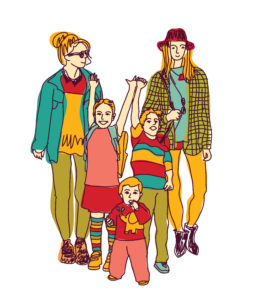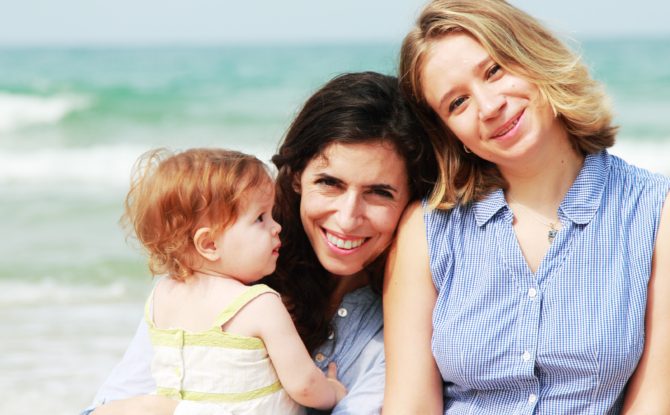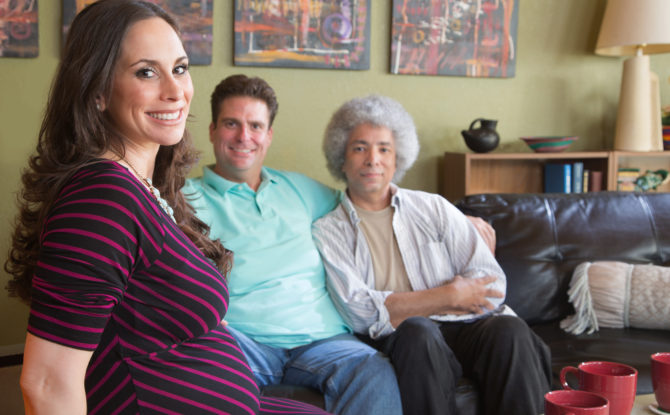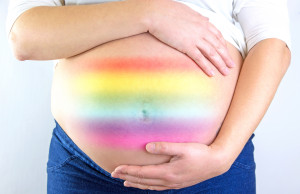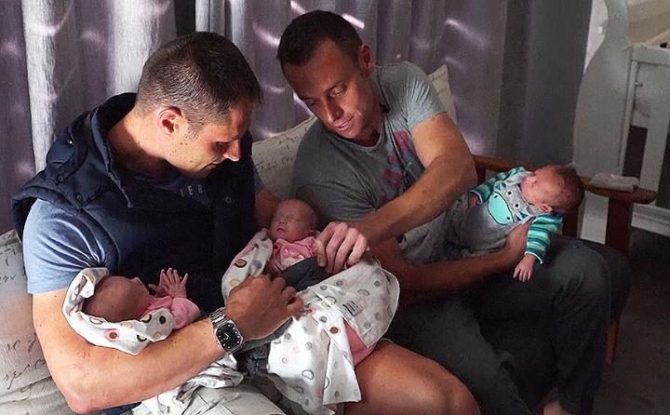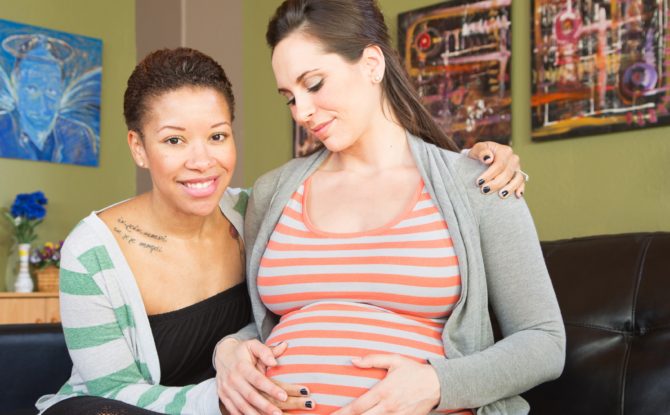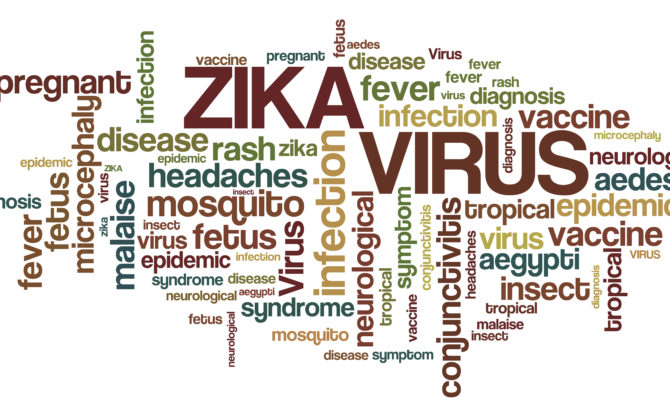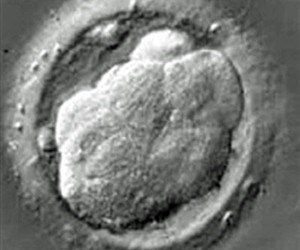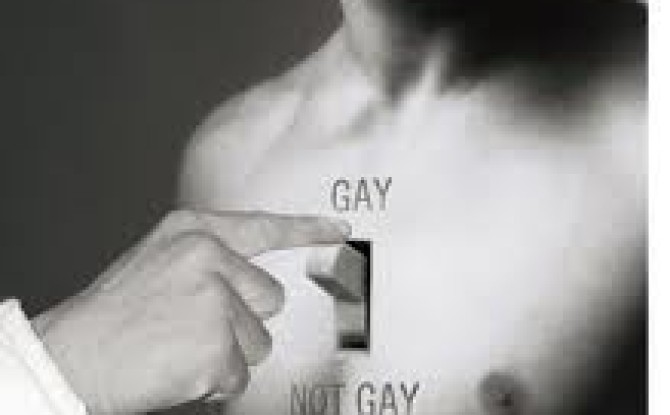Jay Timmons and Rick Olson thought they’d have no legal trouble using a surrogate to birth their son. Then a rogue judge in Wisconsin pulled them into an 11-month legal battle.
Jay Timmons and Rick Olson, a married gay couple from Virginia, didn’t think they’d have any trouble becoming the legal parents of the baby boy their surrogate, a Wisconsin woman, delivered for them last year.
They had gotten the frozen embryo that became their son as a gift from straight friends whose in vitro fertilization created more embryos than they could use. They had chosen a Wisconsin surrogate specifically because the state’s Supreme Court had upheld surrogacy, and other same-sex couples had had smooth sailing there. And by just about any measure, the two intended fathers were prime parent material: They both had good jobs, they had been together for 25 years, and they were already raising two daughters from previous surrogacies.
But their careful plans went awry the month before their son, Jacob, was born, when their effort to be named his legal parents landed before a conservative judge who saw surrogacy as a form of human trafficking. Over the next 11 months, the couple’s bizarre legal battle cost more than $400,000 and kept them in constant terror of losing their son.
“We didn’t have one night’s peace,’’ Timmons, 54, a conservative Christian and president of the National Association of Manufacturers, told BuzzFeed News. “We’d wake up absolutely panicked, around 2 in the morning, and talk about the fact that we didn’t know what was going to happen.”
The couple took out second and third mortgages to cover the legal fees, and Olson, 49, quit his job as a federal lobbyist for Capital One to manage the proceedings.
Over the last couple of years, a handful of high-profile surrogacy lawsuits have cropped up in U.S. courts. In California, a surrogate named Melissa Cook refused a man’s wishes to abort one of the triplets she was carrying for him. And in a Pennsylvania, The View co-host Sherri Shepherd tried, unsuccessfully, to pull out of a contract with a pregnant surrogate after splitting up with her husband.
But the Wisconsin case is likely unprecedented, legal experts say, in that the surrogate, her husband, and the intended parents were all happy with their arrangement. Only the judge was not.
The case was a “judicial hijacking,” Melissa Brisman, a surrogacy lawyer in New Jersey, told BuzzFeed News. “We’re at a time when a lot of people are still very committed to the idea that family values means straight married couples who have sex are the only ones who should have babies.”
In June the couple won the case, thanks in large part to the judge’s abrupt resignation. Although the proceedings had played out in closed court, once it was over, supporters of Timmons and Olson provided copies of court transcripts, briefs, and filings to BuzzFeed News. And although the case is certainly an anomaly among the thousands of surrogacy arrangements made in the US every year, it underscores how, in certain areas of the country, surrogacy has become a flashpoint for cultural debates about same-sex marriage, reproductive rights, and the booming fertility industry.
by Tamar Lewin, buzzfeed.com
Click here to read the entire article.



